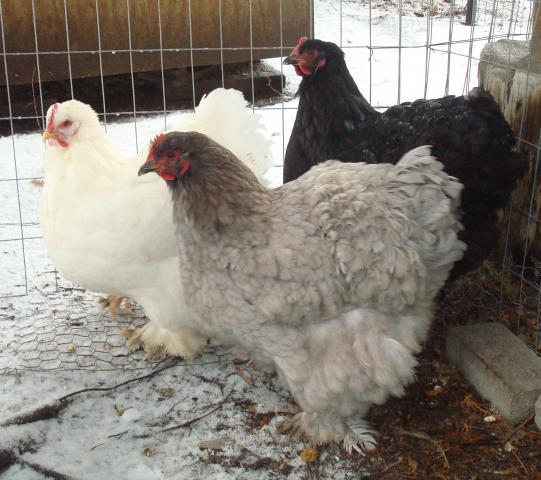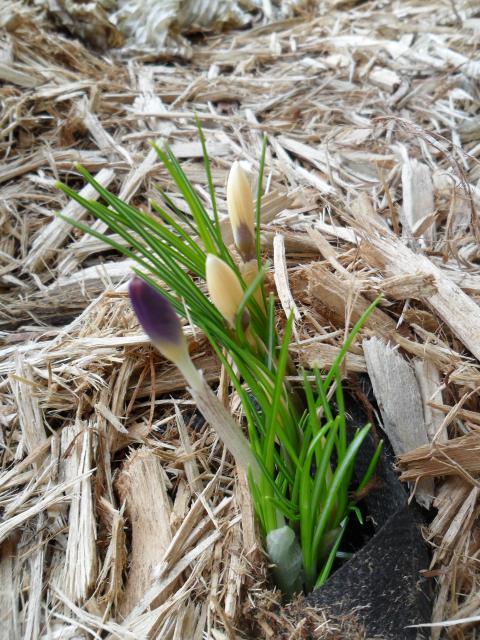Quote:
Yeah, I wasn't worried about it being toxic...just that they'd be dumb enough to gorge themselves on it!
 I decided what the heck and put some in yesterday and they didn't seem to notice a difference. I did put hay down on top of it too. It's not teeny-tiny paper...just like 2" strips. I have an unlimited supply and thought I'd see how it worked.
I decided what the heck and put some in yesterday and they didn't seem to notice a difference. I did put hay down on top of it too. It's not teeny-tiny paper...just like 2" strips. I have an unlimited supply and thought I'd see how it worked.
I have soooo many plans this summer for my birds! I'm going to put up a new double-coop! And hopefully, with the addition of my new rabbit barn, will be looking for some really nice silkies at chickenstock!
 I'd love to find some show quality Bearded blue-splash silkies...I'd be looking for about 6-12 hens and a Roo. (or young pullets and a cockerel)
I'd love to find some show quality Bearded blue-splash silkies...I'd be looking for about 6-12 hens and a Roo. (or young pullets and a cockerel)
 There's someone in Rives Junction who posts on CL with her silkies and they look fantastic...I might contact her but wanted to see if anyone on here had some nice ones too.
There's someone in Rives Junction who posts on CL with her silkies and they look fantastic...I might contact her but wanted to see if anyone on here had some nice ones too.
 Speaking of Silkies...since they don't fly do you have to supply perches for them in the coop or just have something for them to go into? Just curious...never had a banty breed before!
Speaking of Silkies...since they don't fly do you have to supply perches for them in the coop or just have something for them to go into? Just curious...never had a banty breed before!

@Jen - the lady in Rives Junction's name is Vickie, she's very nice. I got all my silkies and cochins from her, very nice quality birds. Idk about show quality just bc I've never looked into those sort of things. She has some marans coming in a few weeks and I'm pretty excited about that! Also she is very decently priced and definitely didn't overcharge me.
My cochins came from Vickie as well. Very nice lady and good quality cochins. Her stock came from Duane Urch and while she doesn't show, she does breed to standard.
These hens were all bred by Vickie


Yeah, I wasn't worried about it being toxic...just that they'd be dumb enough to gorge themselves on it!

I have soooo many plans this summer for my birds! I'm going to put up a new double-coop! And hopefully, with the addition of my new rabbit barn, will be looking for some really nice silkies at chickenstock!




@Jen - the lady in Rives Junction's name is Vickie, she's very nice. I got all my silkies and cochins from her, very nice quality birds. Idk about show quality just bc I've never looked into those sort of things. She has some marans coming in a few weeks and I'm pretty excited about that! Also she is very decently priced and definitely didn't overcharge me.
My cochins came from Vickie as well. Very nice lady and good quality cochins. Her stock came from Duane Urch and while she doesn't show, she does breed to standard.
These hens were all bred by Vickie








